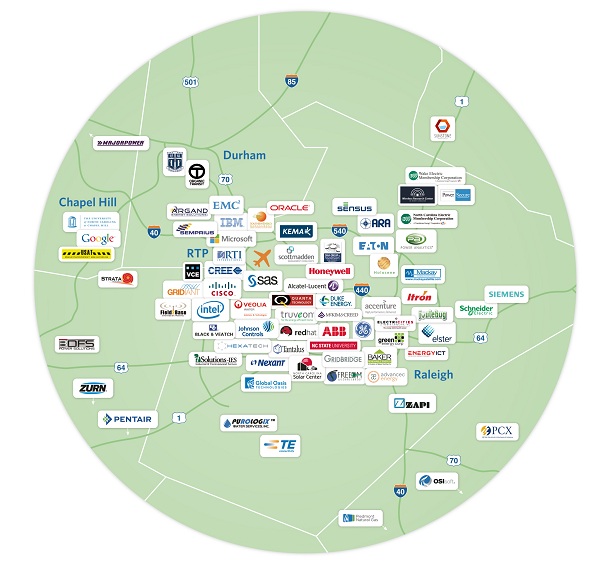The North Carolina clean energy sector generated $3.6 billion in total revenue in 2013, according to a recent census administered by the North Carolina Sustainable Energy Association (NCSEA). Additionally, the number of full-time employees has grown 20 percent, to 18,404, over 2012 numbers at the 570 firms who participated in the census.

Picture courtesy of Research Triangle Cleantech Cluster
Strata Solar, based in Chapel Hill, is the largest solar developer in the state and one of those clean tech success stories. Along with the UNC Kenan-Flagler Business School Center for Sustainable Enterprise, the Research Triangle Cleantech Cluster and UNC Insititute for the Environment, Strata co-sponsored the Clean Tech Summit at the Friday Center on Wednesday.
The Clean Tech Summit achieved what so many of these types of events hope for: a diverse makeup of attendees. Of course, the usual suspects from sustainability departments at local municipalities and universities were in attendance, but the summit also attracted venture capital firms actively seeking new investments, which, according to Gigaom, is something a recent Department of Energy event could not achieve. Just as prevalent as the policy wonks were students, not only from the area’s major institutions but even a smattering of middle and high schoolers.
Luncheon keynote Lou D’Ambrosio, Chairman of Sensus, observed the crowd’s age variance, stating “it is great to see the students here, because it is going to be up to them to solve these challenges.” Many of those challenges are staggering and (quite honestly) a little mind-numbing, but there are many successes North Carolina can celebrate, as well. D’Ambrosio, whose firm is based in Morrisville, called the Research Triangle the “Silicon Valley of smart grid.”
Ivan Urlaub, Executive Director for NCSEA, explained that since the creation of the Renewable Energy Portfolio Standard, which mandated utilities in the state add renewables to their energy supply, the associated cost has been up to 73 percent lower than originally anticipated. Representative Charles Jeter (R-Mecklenburg) further supported REPS by saying, “I’m not sure why anyone would want to do away with a program that has been so successful.”
One could infer by the high rate of traffic using the event’s hashtag, #UNCcleantech, that the younger generation is engaged and ready to see action. With policy, workforce development and innovation hurdles being addressed, the future of clean tech in North Carolina is bright.



Comments on Chapelboro are moderated according to our Community Guidelines